Gent-Wevelgem: Facts and figures
Stats and stories from the middle child of the Spring Classics
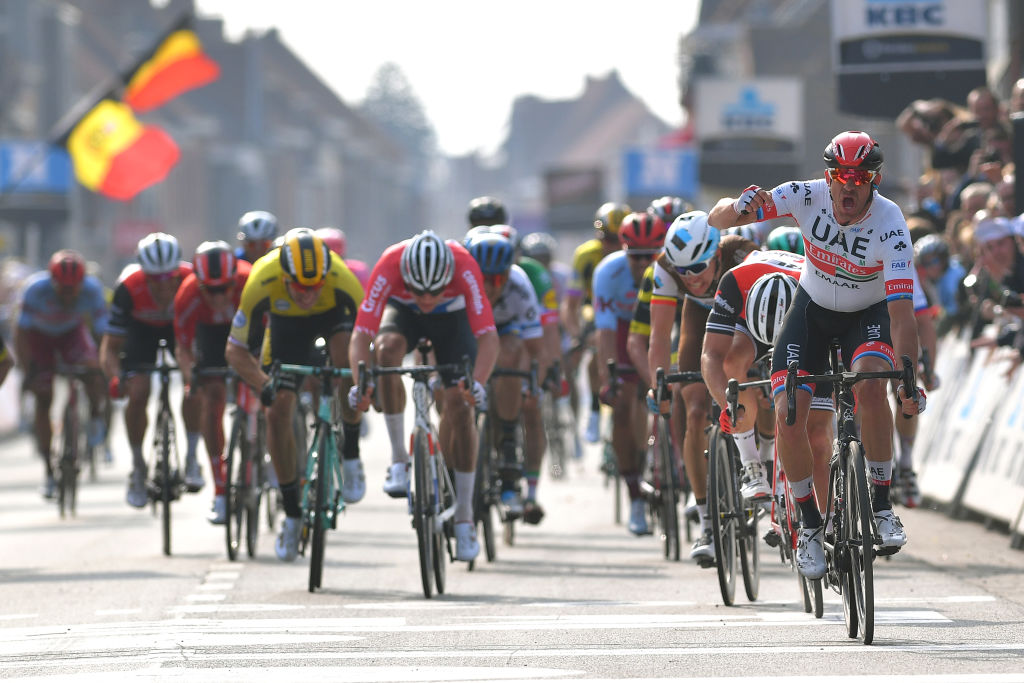
Gent-Wevelgem is like the middle child of the Spring Classics: often underrated, a little overlooked, and still seeking its own identity. It's not the sprinter's Classic that Milan-San Remo can be, it's not quite the hard-man's race that Tour of Flanders is and it's been many things over the years.
It's been long – 277km in 1977 – and it's been shortish, at just 190km in 2013, and it’s also been flat, it's been hilly and everything in between.
Gent-Wevelgem started out in 1934 as an autumn race, but first ran in the spring in 1947, and at one point paired up with the Omloop Het Volk (now the Omloop Het Nieuwsblad) to make up the two-day Trophy of Flanders.
The organisers have tinkered with the race's length, and the number of short, steep, cobbled climbs on the course, but ultimately settled on the Kemmelberg as the signature race-making ascent.
No longer starting in Gent, the race moved to suburban Deinze and was due to be relocated to the even more distant Ypres this year. Since 2017, the race has included several 'plugstreets' – dirt roads – in the final 60km, in addition to the cobbled Kemmelberg, to up the drama.
The organisers added a women's race in 2012 and a cyclo-sportif in 2009.
Most successful rider
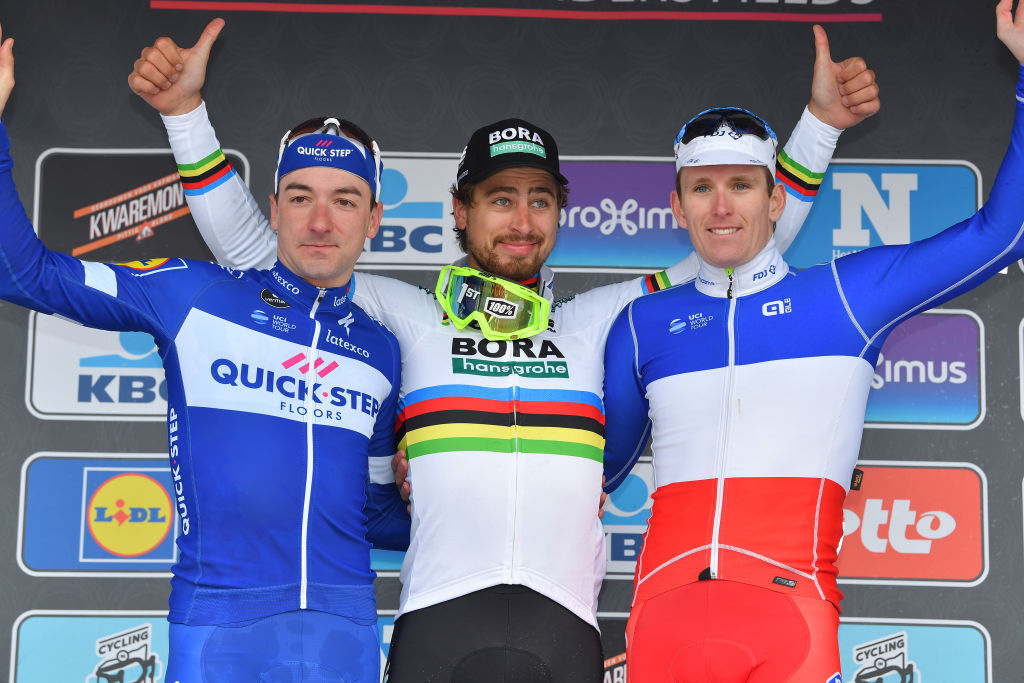
No one rider has dominated Gent-Wevelgem, and six different men have won the race three times. Most recently, Peter Sagan, Tom Boonen and Mario Cipollini joined the great Eddy Merckx, Rik Van Looy and Robert Van Eenaeme as triple winners.
Get The Leadout Newsletter
The latest race content, interviews, features, reviews and expert buying guides, direct to your inbox!
Of the past 30 years, Sagan has the most podium finishes, adding one second place and two thirds to stand on the podium six times.
Most finishes
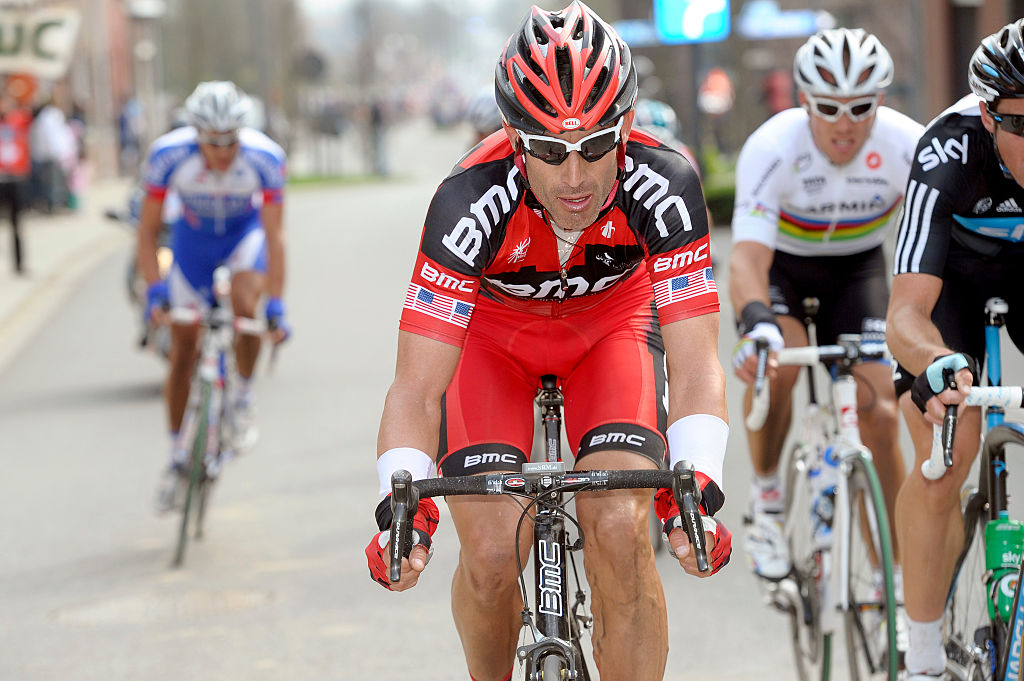
George Hincapie holds the honour of most frequent finisher. The American raced Gent-Wevelgem 15 times – one more than Johan Museeuw and Mat Hayman over the past 30 years. Hincapie famously won the race in 2001, out-sprinting Leon van Bon and Steffen Wesemann.
Bubble Boy
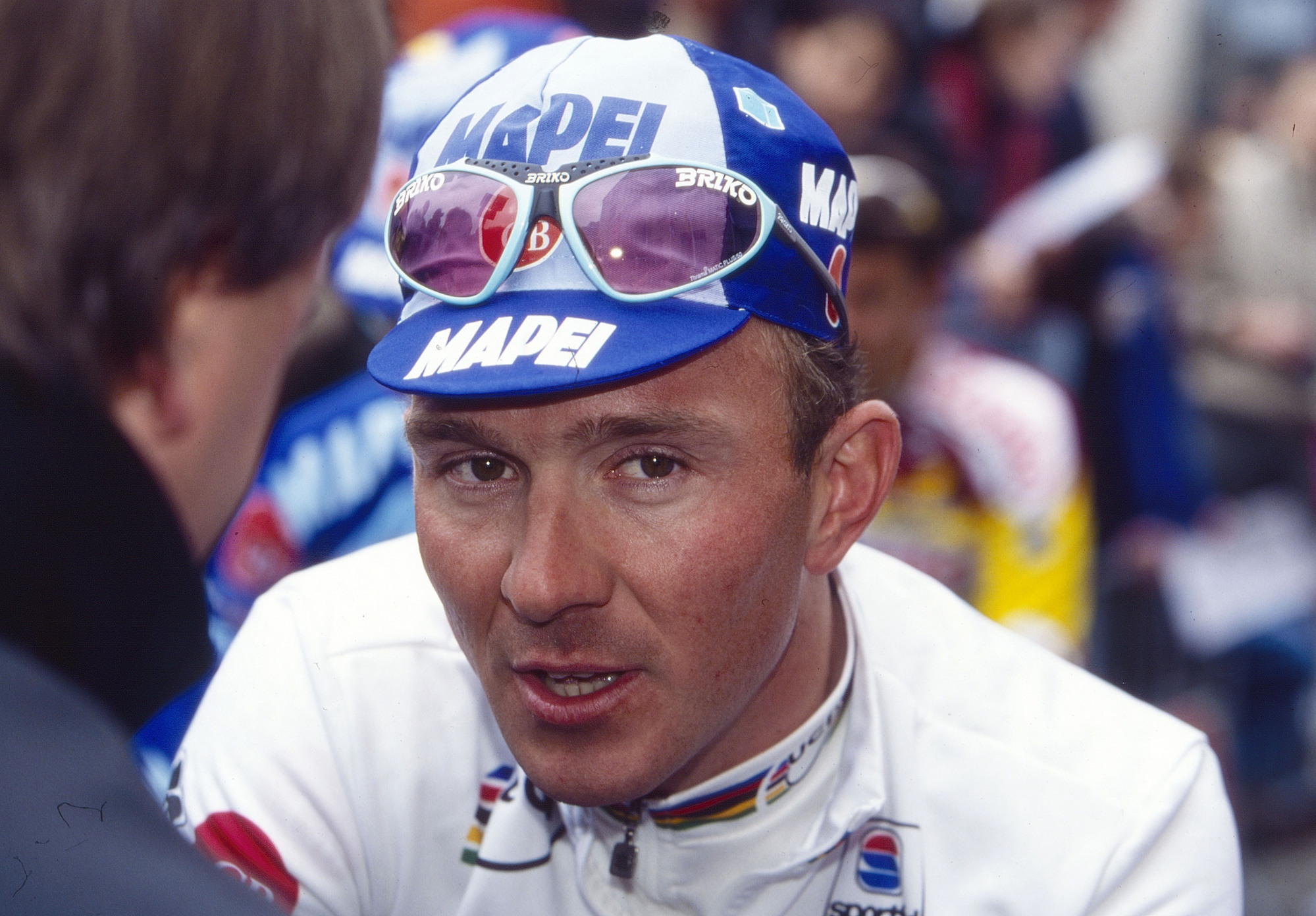
Johan Museeuw won a lot of races, but never Gent-Wevelgem. He landed on the podium three times – second in 1990, and third in 1994 and 2000 – and finished inside the top 10 eight different times.
Slowest edition of the past 30 years
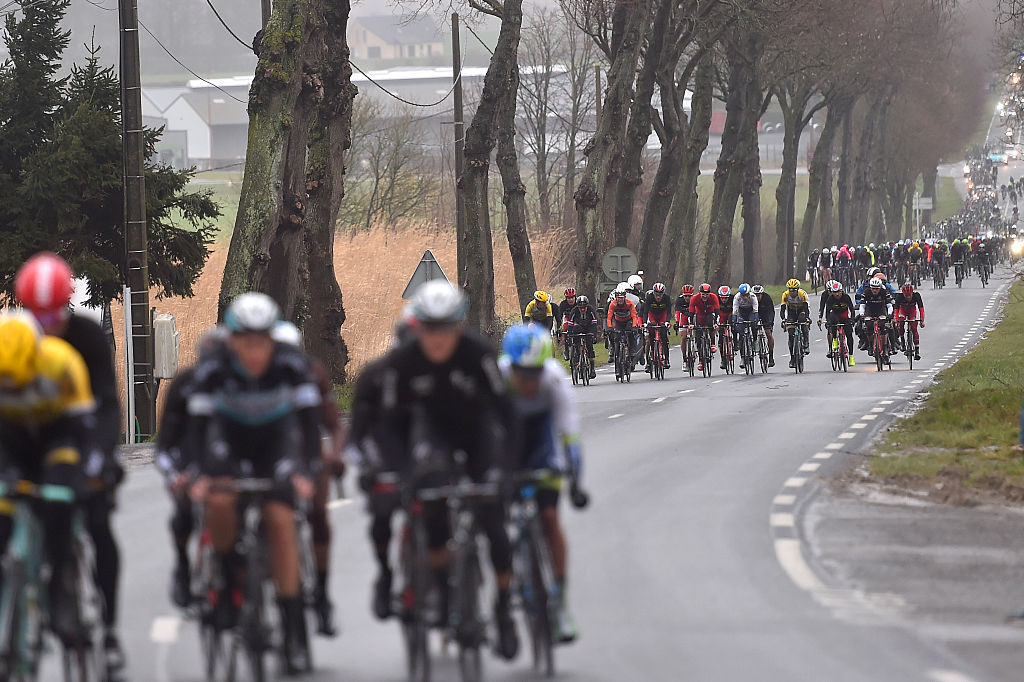
In 2015, Gent-Wevelgem took place on a stormy day with strong winds and devastating gusts that blew Geraint Thomas off his bike and into a ditch. That didn't stop the Welshman, however, and he made the lead split with Niki Terpstra, Stijn Vandenbergh and Luca Paolini.
After Sep Vanmarcke and Jens Debusschere made it on, Paolini attacked with six kilometres to go, surprising his rivals and soloing in for what would be the last win of his career. He tested positive for cocaine during the Tour de France, was suspended and then retired after revealing a difficult battle with painkillers abuse during his career.
Strangest edition
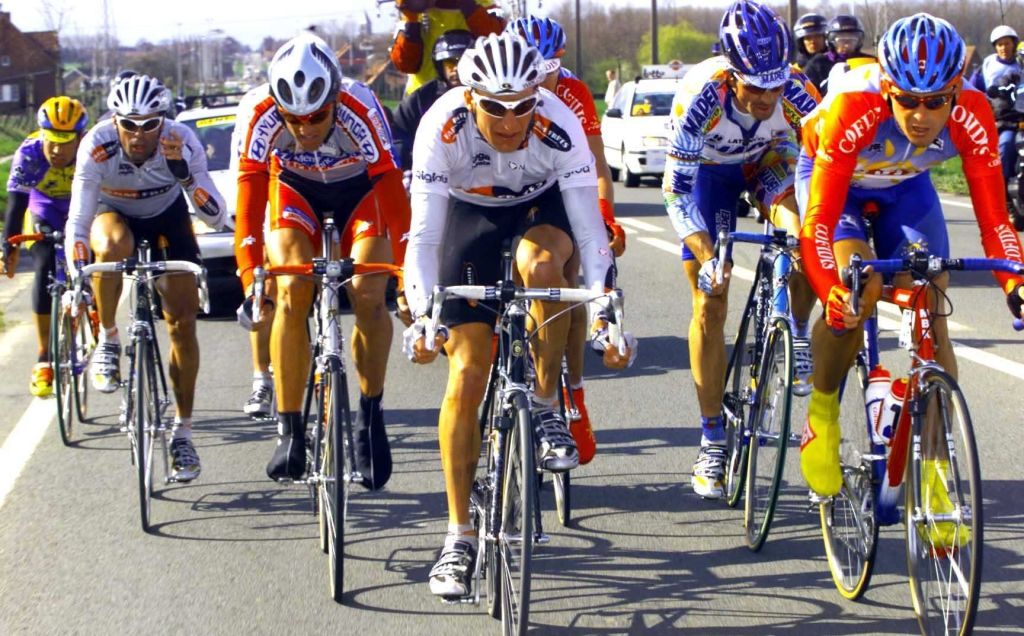
In 2000, Erik Zabel, then riding for Telekom, was in a chasing group 40 seconds behind the leaders with about 25km to go when a small black horse – startled no doubt by the helicopter overhead – broke out of its paddock and ran straight into the peloton, knocking Zabel down and then galloping alongside the racers.
Zabel was angry and shocked, but relatively unscathed, and the horse eventually missed a turn and trotted off into town.
Oldest winner
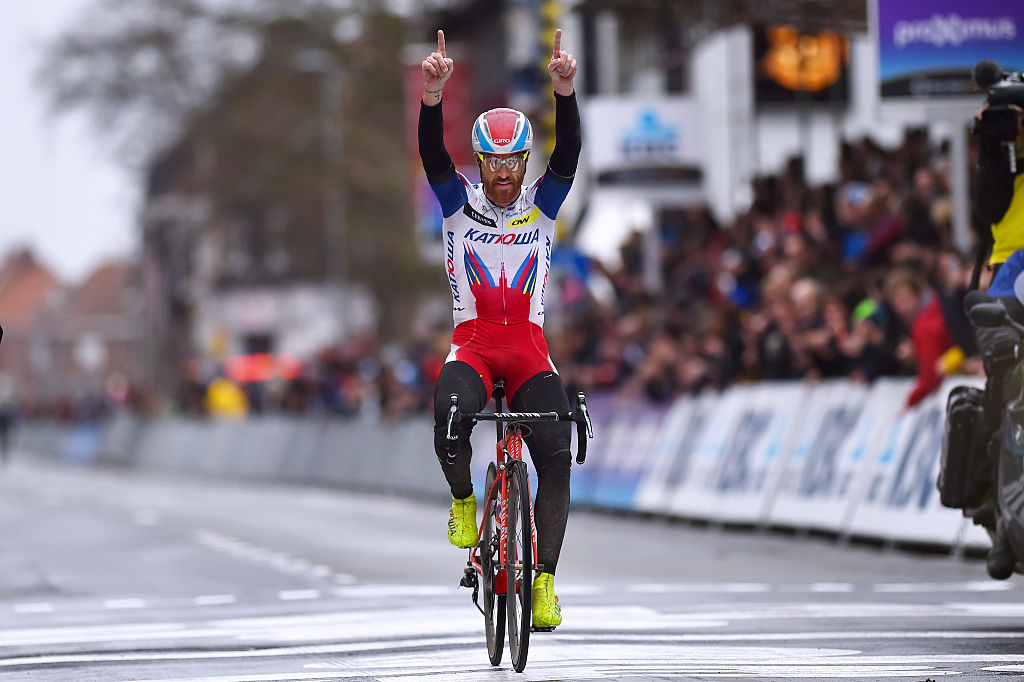
Luca Paolini was the oldest rider of the past 30 years to win Gent-Wevelgem in 2015. He won aged 38, after a 15-year career.
Youngest winner
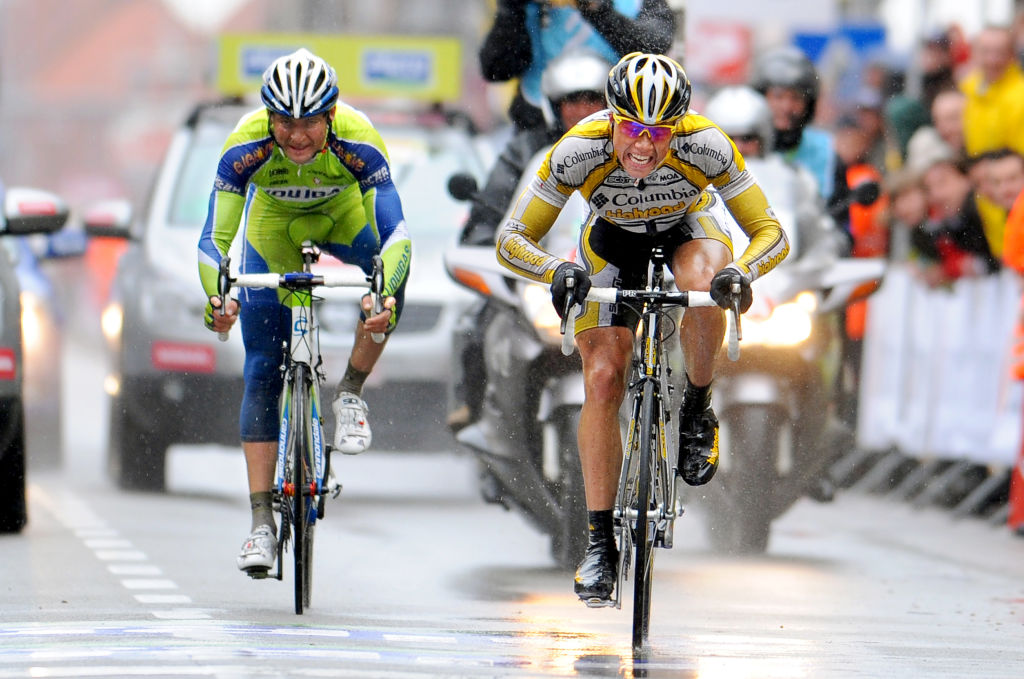
Edvald Boasson Hagen was only in his second WorldTour season with Team Columbia-HTC in 2009 but had proven his mettle with stage wins at the Tour of Britain and Eneco Tour.
At Gent-Wevelgem he had a pair of super-helpers in George Hincapie and Marcus Burghardt who, when Boasson Hagen escaped with Aleksandr Kuschynski on the final ascent of the Kemmelberg, shut down every chase.
Boasson Hagen handily out-sprinted the Belarussian to take the biggest win of his career. He was just 21, the same age as Eddy Merckx, when he won Gent-Wevelgem in 1967.
Race visualisation

Laura Weislo has been with Cyclingnews since 2006 after making a switch from a career in science. As Managing Editor, she coordinates coverage for North American events and global news. As former elite-level road racer who dabbled in cyclo-cross and track, Laura has a passion for all three disciplines. When not working she likes to go camping and explore lesser traveled roads, paths and gravel tracks. Laura specialises in covering doping, anti-doping, UCI governance and performing data analysis.